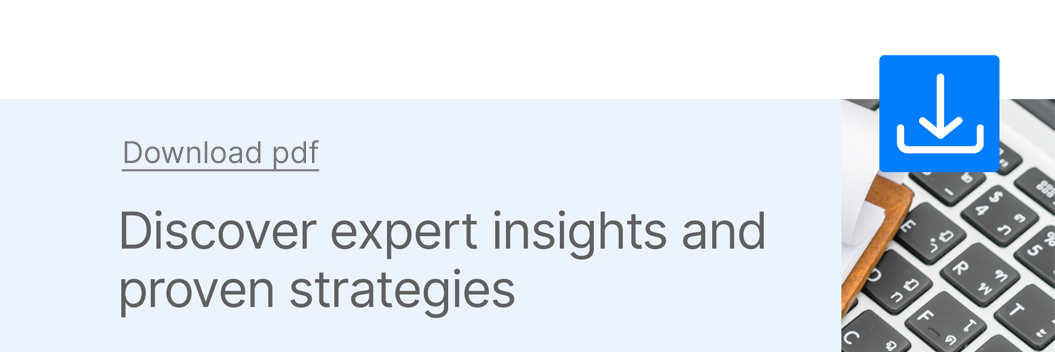HIPAA Compliance is the primary law that controls how personal information about patients is used and moved. The HIPAA rules for healthcare professionals must be followed by almost every organization that has anything to do with healthcare, whether directly or indirectly. The different regulations and requirements that make up the HIPAA compliance guidelines may make it hard for businesses of any size to keep up with them. These rules and conditions dictate the HIPAA compliance guidelines.
Guidelines for Health Care Workers in Understanding HIPAA
The HITECH Act of 2009 was one of the most recent and significant revisions to the HIPAA laws since they were established. Over the years, the Office for Civil Rights (OCR) and the Department of Health and Human Services (HHS) have worked together to change HIPAA. They have set up and enforced several “rules” to protect patient information’s privacy, confidentiality, and integrity.
Healthcare organizations must follow these rules to protect the use of patient health information (PHI) and to avoid paying hefty fines for possible HIPAA violations. Whether you plan to make sure you’re in compliance with HIPAA on your own or hire a professional, it’s a good idea to learn about its many parts and scope. This is especially true for:
- What is the HIPAA Act?
- What is included in PHI?
- Who must adhere to HIPAA regulations?
- The Four Major HIPAA Regulations
What is HIPAA Act?
HIPAA was adopted in 1996 to provide seamless health coverage for Americans and set guidelines for using and sharing personal patient information (i.e., Patient Health Information or PHI).
Any organization that handles PHI, either directly or indirectly, must follow the rules and requirements set out in the HIPAA regulations. Regardless of where the data originated, information must be protected under HIPAA following the passage of the HITECH, the Health Information Technology for Economic and Clinical Health (HITECH) Act.
HIPAA sets guidelines for the appropriate use of technology and security measures to protect sensitive medical data through effectively implementing the act’s privacy and security principles.
Download PDF: HIPAA Compliance Checklist 2023 PDF
What is included in PHI?
PHI is any record that can be used to identify a patient positively. This includes both paper and digital documents. PHI should be broadly viewed within the sector and related activity as any data that could be considered personally identifiable information (PII) outside healthcare purposes. This kind of thinking will make it easier for your company to follow HIPAA regulations.
One possible misunderstanding of HIPAA is that it only applies to medical information. HIPAA, on the other hand, covers a wide range of actions, purposes, people, and third parties that are not strictly medical, such as insurance and payment processors. This is because the law is meant to protect any information that can be used to identify a person as the patient in question.
For example, the rule covers private conversations with doctors, information about doctor visits, medical bills, and information about how payments are made.
Further PHI Categories
Here is a list of some other types of personally identifiable information (PII) that may be in medical records and other healthcare documents:
- Information about patients’ locations
- Date of birth minus the year of birth
- Call-in numbers
- Email addresses
- Personal identification numbers
- Health plan specifics
- An IP address
- data biometrics
Healthcare organizations must follow HIPAA’s rules on data protection and keep and process large amounts of PHI and PII daily. However, the same laws and guidelines apply to all organizations encountering PHI indirectly.
Who must adhere to HIPAA regulations?
HIPAA tries to protect many millions of Americans’ private and sensitive health information. But HIPAA requires that all covered enterprises (CEs) and their business associates (BAs) follow HIPAA rules when storing and sending any information that could be used to identify a patient. This is because a breach could have very bad effects.
Included Entities
The U.S. Department of Health and Human Services (HHS) says that “covered entities” (CEs) are those that fall into one of the following groups:
- Health programs
- Clearinghouses healthcare
- Healthcare professionals
Health plans, also called payers or insurance companies, send their patients’ financial and medical information to different providers and vendors. HIPAA privacy laws apply to everyone who pays for health insurance, such as HMOs, Medicare, Medicaid, business health plans, and health maintenance organizations.
Healthcare clearinghouses function as middlemen between various healthcare organizations, processing medical data received from one and sharing it with another in a manner accepted throughout the sector.
Lastly, various providers collect patient data from medical records, interactions between patients and doctors, and other demographic data. The more well-known examples are hospitals, clinics, independent doctors, diagnostic labs, pharmacies, and dental offices. In general, you should take precautions to avoid HIPAA non-compliance if you offer services covered by a person’s health insurance.
The Four Major HIPAA Regulations
In addition to the preceding specified rules, HIPAA has also seen the establishment of other regulations under its purview throughout its existence. These are meant to give CEs and BAs thorough PHI protection standards.
Before creating or outsourcing your HIPAA compliance program, you need to be mindful of the following four crucial HIPAA rules:
- Privacy Regulation
- Security Regulation
- The rule requiring breach notification
- The Compliance Guideline
- Privacy Rule under HIPAA
The most foundational set of regulations that businesses must follow is the HIPAA Privacy Rule. Its main goal is to define the circumstances under which PHI can be exchanged or exposed.
According to the HHS Privacy Rule Summary, the following conditions must be met:
Limitation on disclosure: Unless the following conditions are met, no covered entity or business associate may access or disclose PHI.
- The person who wants the PHI asks for it.
- The HHS requests it.
- The approved usage criteria are met to some extent (e.g., research, public interest, or benefit projects).
Limitation of disclosure: CEs and BAs shall only release PHI to the extent required by the HHS’s Minimum Necessary Requirement.
Healthcare organizations must manage who has access to PHI and under what circumstances under the HIPAA Privacy Rule. It also gives patients the right to view their own PHI.
Security Rule under HIPAA
Although every patient is provided rights under the Privacy Rule, the Security Rule specifies the norms and conditions under which these protections must be implemented.
According to the Security Rule Summary of the HSS, covered entities must comply with three categories of requirements:
Administrative protection: These cover broad controls guiding the administration of a company’s security procedures, people, and risk management strategy.
Physical protections: These are the controls used to monitor, limit, and prevent people from entering certain areas and using certain technologies.
Technical protections include extensive controls aimed at servers, wireless networks, and other IT infrastructures that could pose cyber threats.
Every organization’s HIPAA compliance strategy should include implementing suitable cybersecurity solutions, including firewalls, network security, cloud security, data encryption, identity & access management, and other components.
Breach Notification Rule under HIPAA
The Privacy Rule says that a HIPAA breach is any illegal use, access, or disclosure of PHI that puts PHI’s privacy and security at risk. The Breach Notification Rule tells businesses precisely what they need to do in case of a breach.
- Breach Notification from HHS Covered entities must notify the competent authorities in the following circumstances, per requirements:
- If a breach affects less than 500 people, the affected people and the HHS Secretary must be told within 60 days of the end of the calendar year.
- Affected individuals and the HHS Secretary must be notified of breaches involving 500 or more people within 60 days of the violation being discovered. Companies might also be required to inform a well-known media outlet about the incident, depending on the severity of the breach.
- Organizations must proactively guard against security breaches and implement effective threat detection and risk mitigation processes considering today’s sophisticated cyber threats. Without a robust communications network, post-incident remediation will devolve into a disorganized jumble that will cause more harm than good.
Rules for HIPAA Enforcement
The Office for Civil Rights (OCR) and the Department of Justice (DOJ) ensure that people who break HIPAA pay fines and get other punishments. The HIPAA Enforcement Rule outlines them. The financial penalties that organizations are required to pay under the Rule are as follows:
Individual Penalties: For infractions committed with willful neglect and no corrective action taken, an individual may be fined anything from $100 to $50,000.
Annual Boundaries: In a calendar year, a covered entity may not be exposed to more than $1.5 million in total penalties for all violations
It’s best to get help from a professional because the fines could be very high, and the damage to your business’s reputation and customers’ private information could be permanent. You can seek the help of a seasoned provider of compliance consulting services who can analyze your security controls, suggest remedial measures to address flaws, and take care of all aspects of your compliance obligations.
Essential Components for Successful HIPAA Compliance
The following essential components must be included in your HIPAA compliance program due to the complex requirements outlined in HIPAA’s numerous rules and the severe fines associated with HIPAA violations:
- Annual Protection Audits: Examining your physical, administrative, and technical safeguards
- Remediation Initiative: Addressing security framework holes within predetermined timeframes and recording all compliance actions.
- Rules on Compliance and Employee Training: Providing regular updates to the regulations on compliance and training staff on how to comply with these policies.
- Business Associate Agreements (BAAs) create contracts with each of your BAs to guarantee the secure handling of all PHI.
- Crisis management entails documenting and disclosing security breaches to authorities and those affected.
Conclusion
All healthcare institutions should follow the rules, regulations, standards, and other essential things listed above since HIPAA compliance is necessary for any healthcare sector to work well. This will provide a framework devoid of errors.
References
Security, R. (2022, January 28). Breaking Down the HIPAA Guidelines for Healthcare Professionals | RSI Security. RSI Security. https://blog.rsisecurity.com/breaking-down-the-hipaa-guidelines-for-healthcare-professionals/









